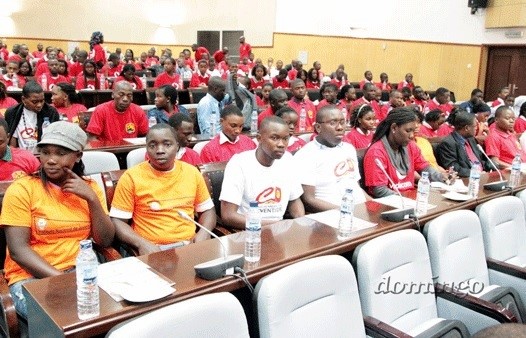Context:
The Mozambique National Statistical Institute (2014) estimated that more than 45% of the Mozambican population of about 27 million is under 15 years, while 33% are in the youth category of 15-35 years. The country’s universities and other tertiary education institutions churn out about 50,000 graduates annually, majority of whom lack employability skills. The youth in Mozambique contend with high rates of unemployment. This increased from 42% in 1991 to 42.8% in 2007 and 43% in 2014. The youth unemployment rate eased marginally to 42% in 2015 and 41.4% in 2016. This means that at least four in every ten youth in Mozambique are unemployed. Youth unemployment presents a sub-optimally utilized potential. Mozambique has a Youth Policy complete with implementation strategy. The youth policy recognizes the fundamental right of Mozambican’s youth to decent life, access to decent work, quality education, access to good healthcare, and social well-being. The youth policy is operationalized through annual work plans, which are evaluated and its findings disseminated.
Implementation of programme/ initiative:
The Mozambique Youth Observatory was established by the National Youth Council of Mozambique to provide the youth with space and a platform for policy lobbying, advocacy, influencing and sharing. It was established to fill the void in understanding and developing youth targeted programmes, sharing successes in youth interventions, advocating for appropriate youth-oriented policies and projects, and enhancing youth inclusion in development. The Youth Observatory also provides information and trains young people in youth development issues. It is implemented by the National Youth Council in collaboration with internal and external stakeholders. The main objective of the Youth Observatory is to monitor and evaluate the level of compliance with youth-targeted interventions implemented by the government, private sector and other non-state actors. The Youth Observatory also conducts social mobilization of young leaders to actively participate in public decision-making and influencing decision-makers to increasingly involve youth in national development agenda. The project is supported by the government, private sector and other non-state actors at a budget of US$320,000.
Main challenges:
The leadership of the Youth Observatory are young people with disabilities. This poses a challenge emanating from the negative perceptions and attitudes about the leadership capability of persons with disabilities. There is also slow response in terms of public policies to address the discrimination and stigmatization of people with disabilities. The project also suffers from scarcity of resources, which inhibits full implementation of some of its activities, including outreach.
Results achieved:
The Youth Observatory has a countrywide outreach and has impacted more than 9,000 young people, out of whom 35% were young women. It has also enhanced policy advocacy and influencing whereby 41 young leaders from the Youth Observatory were nominated as members of local consultative councils. This platform gives the nominated young people opportunity to influence policies, programs, and projects for effective youth development and empowerment. In addition, five Provincial Youth Councils have acquired permanent membership status in Provincial Government Consultative sessions. This gives them the opportunity to influence policies from the grassroots to the national levels. An existing and updated database on the information about youth employment, education, sexual and reproductive health, and youth participation in decision making forums has also been developed for sharing and learning.
Moving Forward:
The focus of the Youth Observatory is to continue to coordinate the youth associations movement by ensuring that young people are given the platform to participate in development, implementation, monitoring and evaluation of youth-targeted policies and programs. The Youth Observatory also seeks to widen the scope of its financing to include local and international partners for enhanced outreach of its programmes.
Replicability:
The youth are the majority of the population in Africa. This makes it imperative for youth to be part of the continent’s development process and not mere beneficiaries. Youth Observatory is a powerful framework for ensuring inclusion of the youth in national development agendas. Establishment of a Youth Observatory group requires existence of an organized and active youth association or movement, which is present in most African countries. It also requires the establishment and institutionalization of a platform for communication with the youth associations, conducting consultations, and having a framework for channeling youth’s ideas in established policy fora. An institutional mechanism for youth engagement in monitoring and evaluation of youth-targeted projects and programmes, and provision of feedback to the youth is also necessary. These frameworks are in existence in most African countries making the initiative to highly replicable.
Project Details
Date: November 20, 2017
